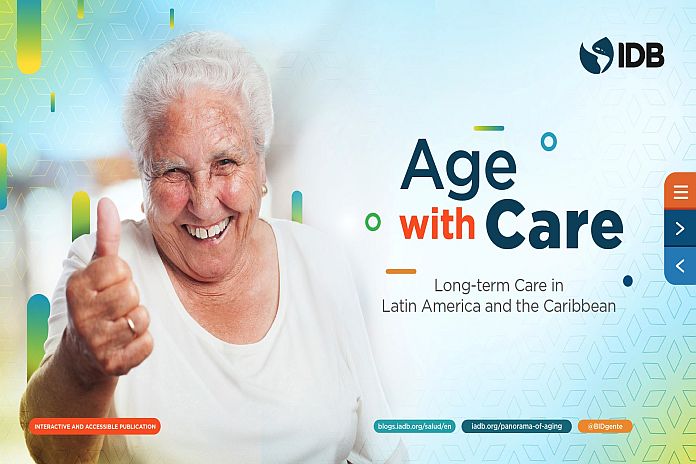WASHINGTON, USA — The spread of COVID-19 among the elderly of Latin America and the Caribbean has exposed the fragility of the care and support systems for this group. The pandemic reveals a lack of protocols for action and prevention in-home care and nursing home settings. It also brings to light the unmet support needs of family and informal caregivers.
The Inter-American Development Bank (IDB) study “Age with Care: Long-Term care in Latin America and the Caribbean ” found that 8 million older people in the region (12 percent of people over 60 and 27 percent of people over 80) currently depend on some sort of long-term care. This means there is at least one basic activity of daily living—like bathing, eating, or getting out of bed—that they cannot do on their own.
A large majority of them are assisted by a family member, usually female. Older people are at risk of having no one to take care of them if their main caregiver falls ill or cannot visit them because of social distancing. In the region, 14 percent of people of 60 live alone, a figure that rises to 20 percent for those over age 80. In countries like Argentina and Uruguay, these two statistics are closer to 20 percent and 30 percent.
The increased burden of providing care during a pandemic and the stress it causes can take a negative toll on family caregivers’ mental and physical health. On top of this, caregivers may have additional responsibilities like childcare and more time-consuming housework.
All of this underscores the need for care systems that encourage home care, more urgent now than ever. Also crucial are support systems for informal caregivers: training courses, emotional support, and job stability.
Caregivers, in addition to being overworked and undertrained, are also in short supply. When a nursing home has infections, for example, staff shortages may make it impossible to take the essential step of separating those caring for the ill from those caring for healthy residents to curb the disease’s spread. The risk of infection between caregivers makes the situation worse.
Countries need to develop care systems that focus on training human resources and that place value on their work through improved job conditions (higher pay, formal employment, career opportunities). This is the only approach that will attract enough human resources to meet care needs.
The projected rise in care-dependent people in the near future ushered in by the regions accelerated population aging makes taking action even more pressing. The number of care-dependent older people is expected to rise threefold to 27 million by 2050, tripling demand for long-term care services. At the same time, the region will also see a drop in the traditional supply of long-term care services, which are mainly provided by women in families who are not paid for this work.
The new IDB publication gives an overview of the current state of long-term care in the region, as well as specific recommendations for countries that want to design and implement a long-term care system, even if they start small.






